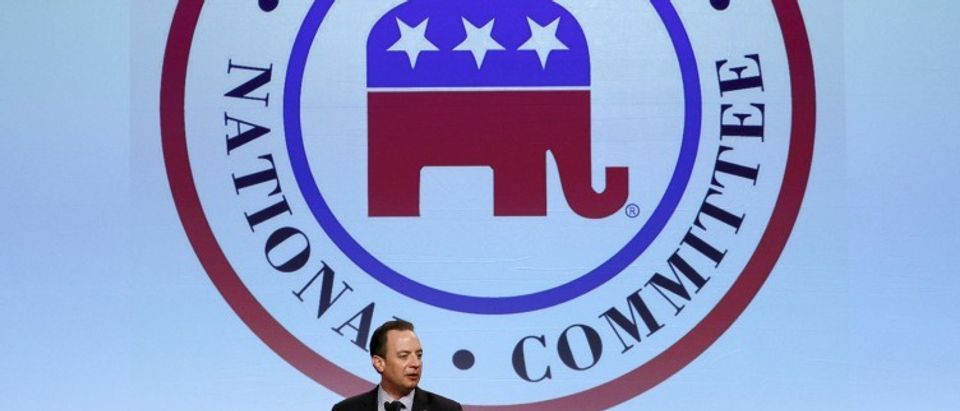With three weeks to go until Election Day, the Republican Party should finally focus on conveying to the American people its message and principles and discussing the failures of President Obama and liberalism. Sadly, the Republican Party has failed to articulate these messages throughout the previous year and a half of the Presidential Election cycle. These omissions have likely hurt the Party and its election chances throughout the ballot.
Fifteen months ago, on August 26, 2015, I had the following Letter to the Editor in The Washington Times entitled “GOP Should Be Educating Voters:”
The Republican Party needs to take advantage of the Donald Trump candidacy rather than fight it.
Many in the GOP have lamented that the American electorate is composed of “uninformed” voters, and this lack of knowledge was what caused voters to choose Barack Obama in the 2012 election.
Well, the media attention on the Trump candidacy has given Republican commentators and candidates unprecedented opportunity to comment on the 2016 presidential election and educate voters on the state of the country. Republicans are using their airtime, however, to belittle and attack Mr. Trump. If Republicans view “uninformed” voters as a reason for the Obama win in 2012 and a challenge for a Republican victory in 2016, they should use the airtime to educate voters. They should discuss Obama’s failures, brag about the successes of Republican policies and extol the virtues of Republican solutions to our nation’s problems.
Ultimately, Republicans commenting in the media are not taking advantage of the opportunities that Mr. Trump has given them to sell the Republican Party to the American voter. Further, Republicans are violating the same order they are hypocritically preaching to Mr. Trump: President Reagan’s “11th commandment” for Republicans to not disparage fellow Republicans.
Fifteen months later, it is clear that the Republican Party has not followed this advice. Rather, many Republican leaders have spent their time attacking Mr. Trump, distancing themselves from him, or responding to the latest media or Democrat-invented Trump controversy.
These Republicans are under the false impression that their criticism of Trump for his non-politically correct statements will somehow raise their own political stock and that of the Party. They fail to realize, however, that, as Republicans, they will always be the Democrats’ political enemies and that any comments they make now will not prevent future Democrat attacks, such as charges of racism and sexism. Most importantly, these Republicans have failed to realize that, with each negative comment about Trump, they damage the Republican Party in three ways.
First, Republican condemnation against Trump statements are fertile material for Democrat and/or media attacks against Trump and, by extension, the entire Republican Party. These types of statements are tremendous campaign weapons because Democrats and/or the media do not have to make the attacks; they can just merely quote the Republican official. Further, the attacks are much more damaging when they come from Republicans (no matter their level of leadership in the party). These comments do not shield other Republicans (such as those running for Congress or state positions), but, rather, they harm them. Trump is the standard-bearer of the Party because he is the Republican nominee, and, in criticizing him, these Republicans are impugning the entire Republican Party and any Republican running for election.
Second, Republicans have failed to grasp the opportunity cost of their comments. With each negative comment that the Republicans make about Trump, they lose an opportunity to describe the failures of President Obama and liberalism, discuss the virtues of the Republican agenda, or demonstrate the importance of the next President’s appointees to the Supreme Court. Republicans only have a limited amount of time to make comments in interviews, press conferences, and speeches. That time should be spent advocating for their agenda. More importantly, the news media only has so much time to cover Republican comments. It is not surprising that the media will cover the “controversial” or “anti-Republican” comments because comments about intra-party controversy will garner the most attention and also further the Democrats’ agenda.
Third, the comments could drive away the new Republicans which Trump has brought to the Party. As of April, Republican voting in the primary was up 60%, over 8,000,000 votes, compared to 2012. Many of these votes went to Mr. Trump. Republicans should strive to keep these voters in the Republican Party. To do so, Republican leaders should not attack the very reason (i.e., Mr. Trump) why these voters have turned to the Republican Party.
All is not lost, however. The last three weeks of the election can be the most important. It is the time when many undecided and on-the-fence voters pay the most attention to politics and the news before making their final decisions. Republicans should support Mr. Trump. For those Republicans that disagree with some of Trump’s positions, they should realize that this small amount of disagreement is far better than the amount of disagreement that they would have with a President Hillary Clinton. Most importantly, as the past eight years have demonstrated, they should realize how much better off the United States would be with a Republican President.
For the next three weeks, the Republican Party should implement a different strategy. Anti-Trump Republicans should avoid media interviews or questions about Mr. Trump. If these Republicans must speak and do not want to show their support for the nominee, they should focus instead on the failures of the Obama administration, Democrat policies, and liberalism. Comments such as these will advance the Republican agenda. The Election is getting an unprecedented amount of attention, and Republicans should concentrate on making the most of this opportunity.
Michael B. Abramson is an Advisor with the National Diversity Coalition for Trump and the state chair of Georgia for Jews Choose Trump (www.jewschoosetrump.org). He is an attorney in Atlanta and managing partner of the Abramson Law Firm. He is the author of A Playbook for Taking Back America: Lessons from the 2012 Presidential Election. His articles can be found at http://www.michaelbabramson.












